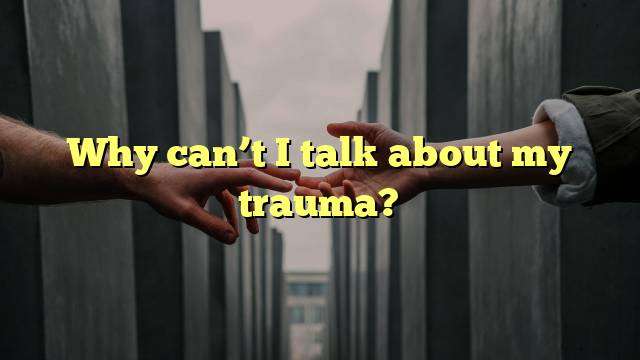Why Can’t I Talk About My Trauma?
Talking about trauma can be incredibly difficult. Even if you want to, it can be hard to find the words. Whether it’s a one-time event or an ongoing experience, trauma can have lasting effects on your mental health and overall wellbeing. It’s normal to feel overwhelmed and scared when trying to talk about it.
What is Trauma?
Trauma is any experience that is emotionally painful and difficult to process. It can be a one-time event, such as a car accident, or it can be a series of events, such as domestic violence or physical abuse. It can also be a combination of both.
Trauma can also be caused by witnessing a traumatic event, such as a natural disaster or an act of violence. This is known as vicarious trauma.
No matter what type of trauma you’ve experienced, it’s important to understand that it’s normal to find it difficult to talk about.
Common Challenges of Talking About Trauma
Talking about trauma can be hard for many reasons. Here are a few of the most common challenges:
Fear of Invalidation
Many people who have experienced trauma fear that they will not be taken seriously or that their experience will be minimized or dismissed. This can be especially true if the trauma was caused by someone close to them.
Fear of Judgment
Another common fear is that they will be judged or blamed for their trauma. This can be especially true if the trauma was caused by someone close to them.
Fear of Reliving the Details
Talking about trauma can also be difficult because it can be emotionally triggering. It can be hard to relive the details of the experience, which can cause intense feelings of fear, sadness, and anger.
Tips for Talking About Trauma
Talking about trauma can be an important part of the healing process. Here are a few tips for making the process a bit easier:
Find a Safe Space
It’s important to find a safe space to talk about your trauma. This could be with a mental health professional, a trusted friend or family member, or even an online community.
Be Patient With Yourself
Talking about trauma can be an emotionally difficult process, so it’s important to be patient with yourself. Take your time and don’t be afraid to take breaks if you need them.
Focus on the Positive
It’s normal to feel overwhelmed when talking about trauma, so try to focus on the positive. Talk about the ways you have grown and the strength you have gained since the traumatic experience.
Know That It’s Okay to Not Talk About It
It’s important to remember that it’s okay to not talk about your trauma. If you don’t feel ready to talk, that’s okay. You can always come back to it when you’re ready.
The Importance of Talking About Trauma
Talking about trauma can be an important part of the healing process. It can help you process your experience, gain insight into your emotions, and work through difficult feelings. It can also help you build resilience and gain a sense of control over your life.
Talking about trauma can also help you connect with others who have had similar experiences. When we share our stories, we can find strength in knowing that we’re not alone and that others understand what we’re going through.
No matter what type of trauma you’ve experienced, talking about it can be an important part of the healing process. While it can be difficult, it can also be an empowering and liberating experience. It’s important to remember that you are not alone and that there are people who care and are willing to listen.



